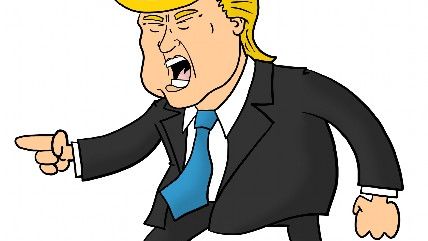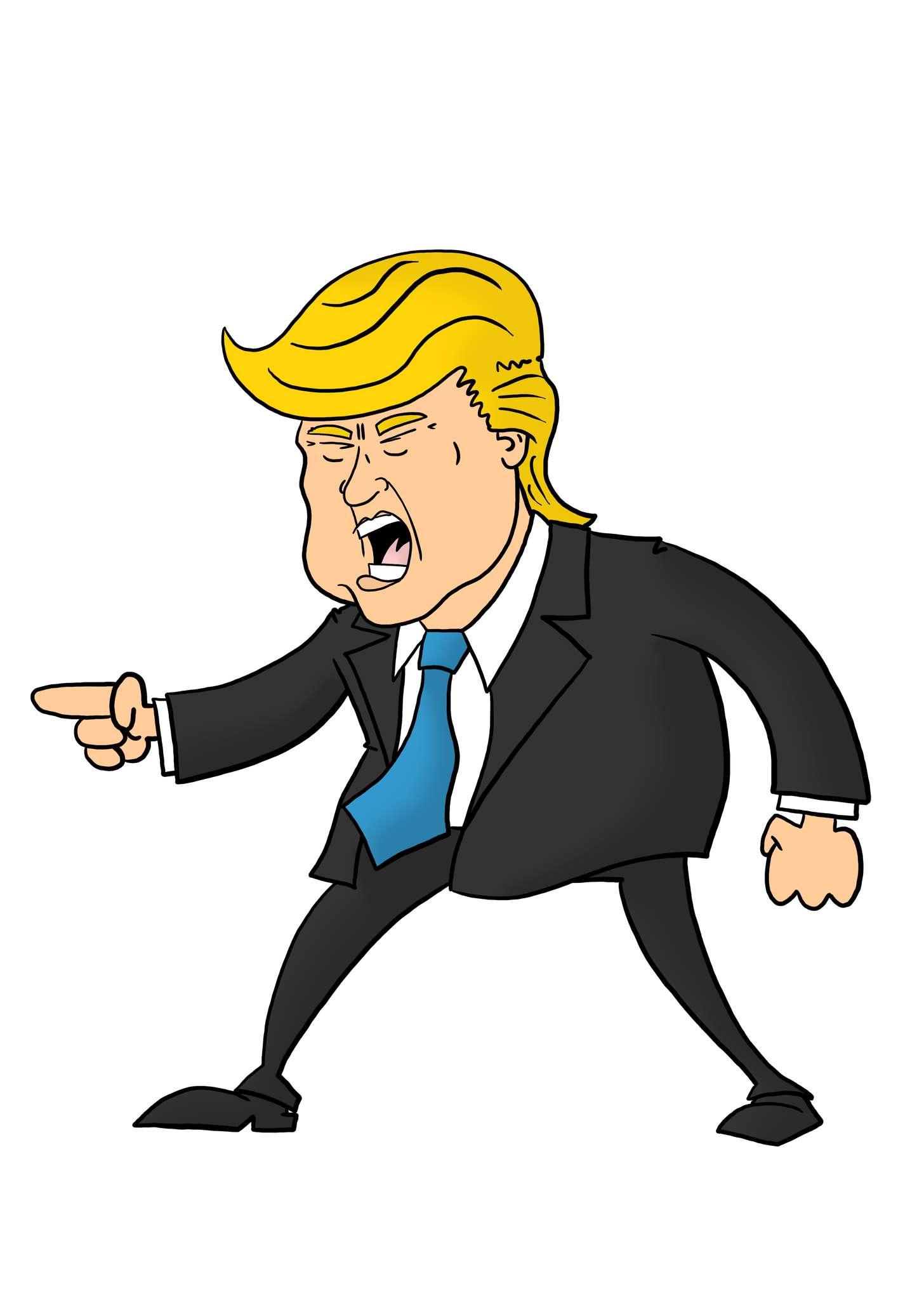Donald Trump's Violent Rhetoric is Protected Speech, For Now
He's come close, but Trump hasn't quite crossed the threshold of unlawful incitement to violence.

Last week, MSNBC's Rachel Maddow

tried to make the case that Donald Trump "deliberately tried to incite violence" before his aborted rally in Chicago. That's a serious charge, one that if true, would place Trump's unmistakably crude, vulgar, often bigoted rhetoric into the realm of criminality.
Trump has indeed made statements in which he seemingly encouraged his supporters to "knock the crap out of" anyone about to throw a tomato at him, opined that he'd like to punch a protester in the face, and even nostalgically longed for the "old days" where there were "consequences to protesting," like people being carried out on stretchers.
Despite the inherent ugliness of the rhetoric and the outright hostility to the Constitution demonstrated by the frontrunner for the Republican presidential nomination, a number of legal experts who focus on the First Amendment say Trump's speech has yet to cross the line into illegality.
Lee Rowland, a senior attorney at the American Civil Liberties Union (ACLU) told Frontline, "Nothing I've seen meets the very stringent restrictive definition for what amounts to incitement that is not protected by the First Amendment," because free speech remains protected as long as it is not both "imminent" and "lawless" incitement. A speaker must be directly soliciting a "specific, illegal act" before the speech becomes criminal.
Rowland adds, "it has to be unlawful violence," meaning something like Trump's call to "knock the crap out of" someone about to assault him with a flying object would not be "an incitement to lawlessness," because the act of throwing a tomato is itself lawless and thus, another person physically intervening would be considered a lawful defense of the speaker.
Wayne Giampietro of the First Amerndment Lawyer's Association explained to Frontline that the things Trump says at his rallies are "protected to the highest degree possible by the First Amendment" because by its very nature it is "core political speech." He adds, "That's why [the First Amendment] was conceived of in the first place."
Writing on his blog at the Washington Post, UCLA law professor (and occasional Reason contributor) Eugene Volokh explains that trying to frame Trump's rhetoric as illegal incitement to violence is complicated further by the fact that a number of states have laws prohibiting "disturbing a lawful meeting." Volokh notes that "courts have held that this is limited to speech that actually tends to shout down the speaker," but that is precisely what the protesters who have taken credit for forcing Trump to cancel his Chicago rally say they intended to do.
Volokh breaks down where incitement begins and ends in a situation like this:
Calling on people to push around ordinary hecklers would probably constitute soliciting or inciting a crime (since the heckling itself isn't a crime, and thus attacking hecklers is a crime). But calling on people to push or even punch hecklers who are seriously disrupting the meeting, and effectively shouting down the speaker, may well be legal, since disrupting the meeting is a crime, using reasonable non-deadly force to stop the disruption is thus not a crime, and soliciting such use of reasonable non-deadly force is also not a crime.
Even if Trump is no friend of free speech, he's entitled to it, and thus far appears to have stayed within the legally required boundaries of the First Amendment.


Show Comments (108)